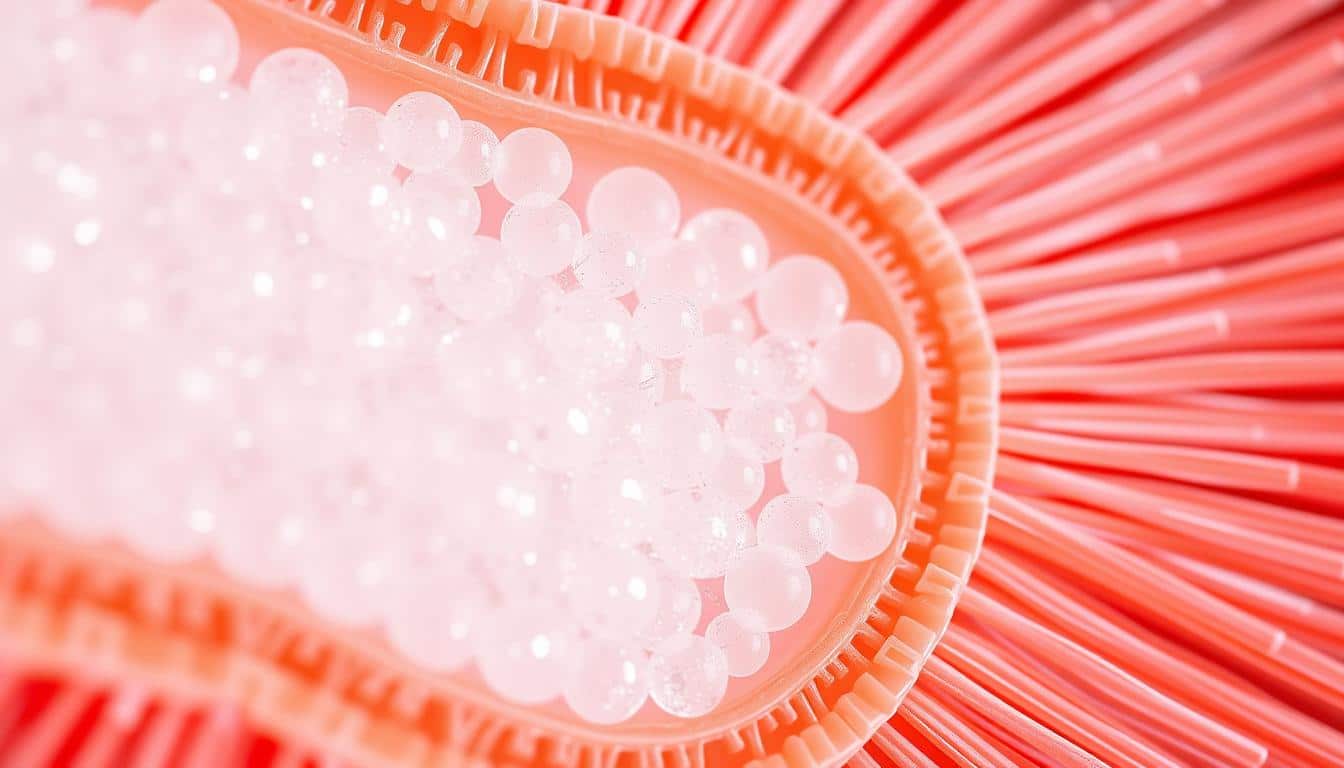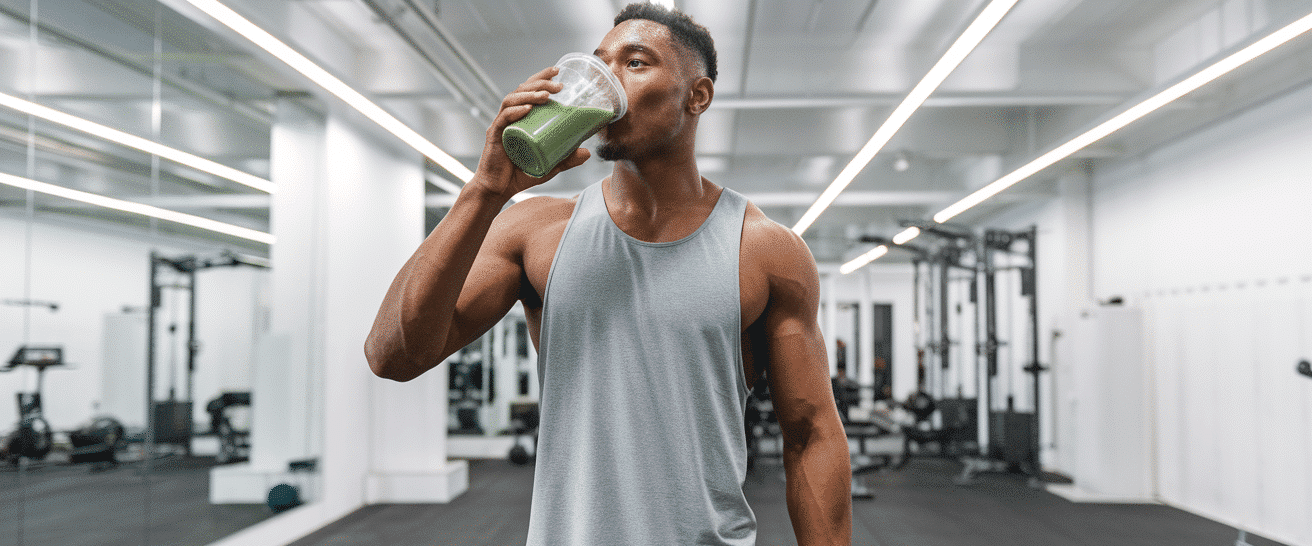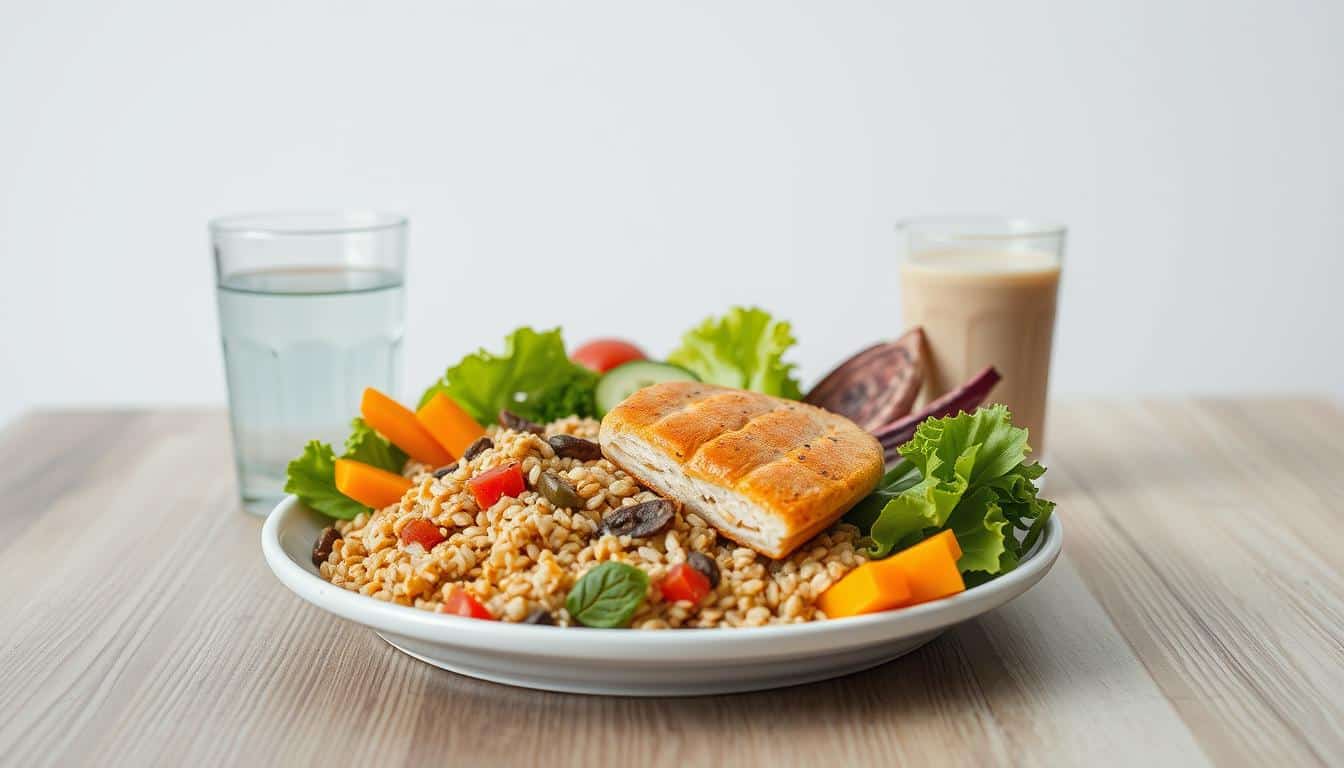Ever feel like your energy crashes mid-workout? The secret to powering through might be simpler than you think. Pre-exercise meal timing plays a huge role in how well you perform and recover. Eating the right foods at the right time can boost your energy, improve endurance, and even help you build strength faster.
Whether you’re hitting the gym, running, or lifting weights, proper nutrition is your best ally. Balancing carbs, protein, and fats before your workout can make all the difference. It’s not just about what you eat—it’s about when you eat it. Ready to take your performance to the next level? Let’s dive into how you can fuel smarter and train harder.
For more tips on optimizing your energy, check out our guide on high-energy breakfast foods for athletes.
Why Pre-Workout Meal Timing Matters
What if the key to better performance lies in when you eat? Your body relies on glycogen, a stored form of energy, to power through high-intensity efforts. When glycogen levels drop, fatigue sets in, making it harder to push through your exercise routine.
Eating too close to your workout can also backfire. Your body diverts blood flow from digestion to your muscles, which can leave you feeling sluggish or uncomfortable. On the flip side, strategic fasting periods—like working out 3-4 hours after a meal—can help burn fat. However, this approach requires careful glucose monitoring to avoid energy crashes.

Proper timing isn’t just about energy—it’s about comfort too. Eating at the right time prevents stomach issues while maximizing nutrient absorption. For morning workouts, overnight fasting can be beneficial, but staying hydrated is crucial to avoid dehydration.
In short, when you fuel your body matters just as much as what you eat. By timing your meals right, you can boost your energy, avoid discomfort, and get the most out of every exercise session.
What to Eat Before a Workout
Ever wondered what fuels your best workouts? The right combination of carbs, protein, and fat can make all the difference. These nutrients work together to boost your energy, support your muscles, and keep you going strong. Let’s break it down.
Carbohydrates: The Primary Energy Source
Carbs are your body’s go-to fuel for exercise. They’re broken down into glucose, which powers your muscles during high-intensity efforts. Aim for 30-60 grams of carbohydrates before your workout. Here are some great options:
- Oatmeal and bananas for quick-release energy during HIIT sessions.
- Whole grain toast for sustained energy during endurance workouts.
Protein: Building and Repairing Muscles
Protein is essential for repairing and building muscles. It also helps prevent muscle breakdown during strength training. Include a moderate amount of protein in your pre-workout foods. Try these:
- Greek yogurt or eggs for a quick and easy option.
- Tofu or plant-based alternatives for vegan athletes.
Fats: Sustained Energy for Longer Workouts
Fat provides long-lasting energy, making it ideal for extended workouts. However, it takes longer to digest, so timing is key. Here’s how to incorporate fat:
- Avocado or nuts for fueling long bike rides.
- Limit high-fat foods before intense sprints to avoid sluggishness.
For more tips on optimizing your nutrition, check out our guide on how nutrition affects athletic performance.
When to Eat Before a Workout
Struggling to find the perfect time to eat before hitting the gym? The hours leading up to your workout can make or break your performance. Eating too early might leave you feeling drained, while eating too close to your session can cause discomfort. Finding the sweet spot is key.
Your digestion plays a big role here. Full meals take 2-3 hours to digest, while snacks need just 30-60 minutes. High-fat foods can take even longer—up to 3.5 hours. Timing your intake based on your workout schedule ensures you’re fueled and ready to go.
Optimal Timing for Different Workout Durations
For longer workouts, like marathon training, aim to eat a balanced meal 3-4 hours beforehand. Think salmon, rice, and veggies for sustained energy. If you’re short on time, a smaller snack 1-2 hours before, like an apple with almond butter, works well.
For quick sessions, such as a 30-minute run, opt for fast-digesting options like a banana or a sports drink 30 minutes prior. Adjust your portions too—400 calories for a 2-hour gym session vs. 200 for a quick jog.
Adjusting Meal Timing Based on Workout Intensity
The intensity of your workout also matters. High-intensity activities, like sprinting or HIIT, require quick energy from carbs. For lower-intensity workouts, like yoga, a light snack is often enough.
Listen to your body and experiment with timing. What works for a high-intensity session might not suit a casual walk. By aligning your eating schedule with your workout goals, you’ll feel stronger and more energized every time.
Sample Pre-Workout Meals
Looking for meal ideas to power your workouts? The right food can make all the difference in your energy and performance. Here are some simple, delicious options tailored to different types of exercise.
For a 45-minute strength training session, try one slice of whole grain toast with a tablespoon of peanut butter. This snack provides quick energy and a bit of protein to keep you going.
If you’re heading to a 90-minute soccer practice, mix one cup of oatmeal with a scoop of protein powder and a handful of berries. This combo offers sustained energy and muscle support.
Morning spin class? Prep overnight oats with chia seeds and banana slices the night before. It’s a quick, no-fuss meal that’s packed with nutrients.
For afternoon marathon training, a grilled chicken wrap with quinoa and spinach is a great choice. It’s balanced, easy to digest, and keeps you fueled for hours.
Vegan athletes can enjoy lentil soup with sweet potato two hours before their workout. It’s rich in carbs and protein, making it perfect for endurance training.
Don’t forget to include fruit and vegetables in your meals. They add essential vitamins and minerals to keep you healthy and energized. For a quick snack, Greek yogurt with a handful of berries is a fantastic option.
Experiment with these ideas to find what works best for you. The right food can transform your workouts and help you achieve your fitness goals.
Supplements to Enhance Your Workout
Want to take your workouts to the next level? Supplements might be the missing piece. From boosting performance to aiding recovery, the right supplements can make a big difference. But with so many options out there, it’s important to know which ones are backed by science and which are just trends.
Let’s start with the basics. Caffeine is a proven energy booster. Taking 200mg about 30 minutes before your workout can increase alertness and endurance. It’s perfect for those high-intensity sports sessions where you need an extra push.
For strength training, creatine monohydrate is a must. Studies show that 5g daily can improve power and muscle gains. It’s especially effective for weightlifting and other high-intensity activities.
If you’re into endurance sports, BCAAs (branched-chain amino acids) can help prevent muscle breakdown during long events. They’re also great for speeding up recovery after intense workouts.
For those who love high-intensity intervals, beta-alanine can reduce fatigue and improve performance. And if your workouts last over 90 minutes, especially in hot conditions, electrolyte tablets are a lifesaver. They replenish lost minerals and keep you hydrated.
Here’s a quick rundown of the top supplements to consider:
- Caffeine: Boosts energy and endurance.
- Creatine: Enhances strength and muscle gains.
- BCAAs: Supports recovery and prevents muscle breakdown.
- Beta-alanine: Reduces fatigue in high-intensity workouts.
- Electrolytes: Keeps you hydrated during long sessions.
Remember, supplements are meant to complement a balanced diet, not replace it. Always check with a healthcare professional before adding new products to your routine. With the right choices, you can fuel your sports performance and achieve your fitness goals faster.
Hydration: The Key to Optimal Performance
Feeling sluggish during your workout? Hydration might be the culprit. Your body needs water to function at its best, especially during exercise. Without enough fluids, your blood volume drops, making it harder to deliver oxygen and nutrients to your muscles.
According to the ACSM, drinking 17-20oz of water 2-3 hours before exercise sets you up for success. This gives your body time to absorb the fluids and prepare for the activity ahead. Staying hydrated isn’t just about drinking water—it’s about timing.
- Drink half your body weight in ounces daily. For example, a 150lb person needs 75oz as a baseline.
- Add 12-16oz of an electrolyte drink 30 minutes before summer runs to replenish lost minerals.
- Check your urine color—pale yellow means you’re properly hydrated.
- For salt-sensitive athletes, add a pinch of sea salt to your pre-workout snack to maintain sodium levels.
- Avoid chugging water. Instead, sip 4-6oz every 15 minutes during exercise to stay comfortable.
Proper hydration keeps your blood flowing, your energy high, and your performance at its peak. Don’t let dehydration hold you back—start hydrating smarter today!
Conclusion
Ready to fine-tune your nutrition for better results? Your training needs are unique, and so should your approach. Start by tracking your energy levels to find the best timing for your exercise. Adjust your ratios—more carbs for endurance, extra protein for strength—to match your goals.
Always pair hydration with your nutrition strategies. For diabetics, monitor glucose levels and consult a dietitian to adjust insulin as needed. Begin with the 2-hour rule before workouts and tweak based on how your body responds.
Remember, small changes can lead to big improvements. Start today and fuel your training smarter!


